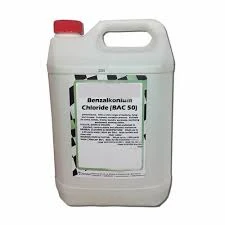Corrosion Inhibition and Scale Control Strategies for Efficient Cooling Tower Operations
Scale and Corrosion Inhibitors for Cooling Towers
Cooling towers are critical components in industrial and commercial systems, providing vital heat exchange processes to maintain optimal operations. However, these towers are susceptible to various issues, primarily scale formation and corrosion. Scale is a hard, mineral deposit that builds up on essential components, while corrosion is the degradation of materials due to chemical reactions in their environment. Both can lead to decreased efficiency, increased maintenance costs, and even catastrophic failures if not adequately managed. Therefore, the use of scale and corrosion inhibitors is crucial in ensuring the longevity and efficiency of cooling tower systems.
Understanding Scale Formation
Scale formation in cooling towers is primarily a result of dissolved solids in the water, particularly calcium carbonate, magnesium sulfate, and silica. When water is heated in the cooling tower, these minerals can precipitate out, forming scale deposits on surfaces such as heat exchangers, cooling tower fill, and piping. This accumulation can significantly hinder heat transfer efficiency, leading to higher energy consumption and operational costs. Moreover, excessive scale can restrict water flow, contributing to pump failures and additional maintenance issues.
The Mechanisms of Corrosion
Corrosion in cooling towers is influenced by various factors, including water chemistry, material composition, temperature, and the presence of oxygen. It can manifest as pitting, uniform corrosion, or even under-deposit corrosion, depending on the conditions in the cooling system. The presence of oxygen, chlorides, and other aggressive ions in the water can exacerbate corrosion processes, leading to material degradation and eventual failure of critical components. Additionally, bacteria and biological growth can foster localized corrosion, further complicating the maintenance of cooling towers.
Importance of Inhibitors
To combat these challenges, chemical inhibitors are employed. Scale inhibitors work by modifying the crystal growth process of the minerals, preventing them from adhering to surfaces or forming hard deposits. Common scale inhibitors include phosphonates, polyacrylates, and polymers that disrupt the crystallization process, effectively keeping the minerals in a dissolved state and allowing them to be carried away with the water flow.
scale and corrosion inhibitor for cooling tower

Corrosion inhibitors, on the other hand, provide a protective film on metal surfaces, mitigating the effects of corrosive environments. Common types include anodic inhibitors that increase the electrochemical potential of metal surfaces, cathodic inhibitors that reduce the rate of cathodic reactions, and filming inhibitors that create a barrier between the metal and the corrosive water. By employing these inhibitors, facilities can significantly reduce the incidence of corrosion and extend the lifespan of cooling tower components.
Best Practices for Application
When utilizing scale and corrosion inhibitors, it is essential to follow best practices to maximize their effectiveness. First, a thorough water analysis should be conducted to understand the specific scale and corrosion risks associated with the system. Based on the results, a tailored program can be developed, employing the right types and concentrations of inhibitors.
Regular monitoring of water chemistry and the effectiveness of inhibitors is crucial. This includes tracking parameters like pH, alkalinity, hardness, and the concentrations of inhibitors being used. Adjustments may need to be made based on operational changes or variations in water quality.
Furthermore, implementing other strategies alongside chemical inhibitors can enhance overall system performance. These strategies can include periodic cleaning of cooling tower components, optimizing water management practices, and employing water treatment technologies such as reverse osmosis, which helps to reduce the concentration of scale-forming minerals in the cooling water.
Conclusion
In conclusion, scale and corrosion inhibitors play an essential role in maintaining the efficiency and reliability of cooling towers. By understanding the mechanisms of scale formation and corrosion, facilities can implement targeted chemical treatments effectively. Through regular monitoring and combined operational strategies, the challenges posed by scale and corrosion can be effectively managed, ensuring that cooling towers operate at peak performance and reduce long-term maintenance costs. This proactive approach not only conserves resources but also supports sustainable industrial operations.
-
Pbtc Scale InhibitorPBTC: A Scale Protector for Industrial Water TreatmentNewsAug.05,2025
-
Organic Phosphonate: An Efficient Defender in the Field of Scale InhibitionNewsAug.05,2025
-
Hydrolyzed Polymaleic Anhydride: Green Pioneer in Scale Inhibition FieldNewsAug.05,2025
-
PAPEMP Polyamino Polyether Methylene Phosphonic Acid For SaleNewsAug.05,2025
-
Flocculant Water Treatment: A Pioneer in Purification in the Field of Water TreatmentNewsAug.05,2025
-
Benzyl Isothiazolinone: An Efficient and Broad-Spectrum Antibacterial Protective GuardNewsAug.05,2025





